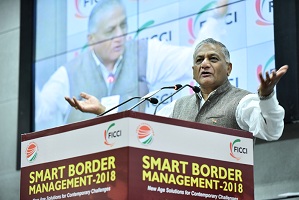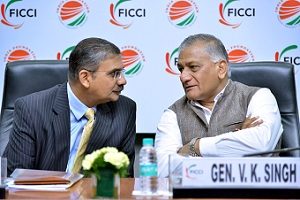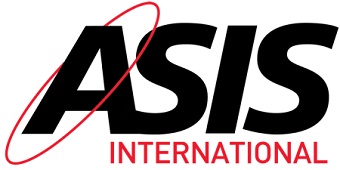As the world’s largest association for security management professionals, ASIS International is comprised of members who practice in hundreds of countries around the world, across numerous sectors and at every career stage. To better serve all professionals and members, regardless of geographic location or income level, ASIS has announced a new level of membership designed for individuals living in regions classified as upper-middle, low or low-income by the World Bank.
This discounted membership level, available only to those who qualify, strengthen the association’s dedication to international growth, bringing all security professionals together to learn, share, teach, and mentor.
“Security management professionals advance safety, protection and strategy on a global scale,” says Richard E. Chase, CPP, PCI, PSP, president, ASIS International. “This new level of membership is designed to welcome more professionals into our member community by adjusting the membership dues to be reflective of local economies. We are committed to making our resources available to all professionals—and ASIS is excited to better serve our members, no matter where they are working in the world.”
ASIS is committed to advancing training, knowledge, and growth in the security industry. This new opportunity for professionals to join the community breaks down barriers to membership and invites all professionals to participate in, and contribute to, the unique value of ASIS. Details and eligibility requirements for this new level of membership will be available on the association’s website in late September.
PSP holds its Q2 form in Pune
 Pune Security Professionals, a Pune based forum recently held a PSP-Q2, 2018 meet in Pune. The event was hosted by Axis Communication where experts from varied field of security put forward their views on issues like disaster management and cyber threats to surveillance systems. Mr. Vinay Vidyadharan. Key Account Manager, Axis Communications, speaking on the subject of Cyber Security in Surveillance Systems, noted that surveillance systems are installed for securing our employees & premises, but at the same time our IT devices such as ATM machine, BYOD’s, Servers , Desktops, Laptops, USB devices, Access Controllers & NVR’s / IP Cameras or for that matter any device which connects to our network are all vulnerable to cyber-attacks, hence having a robust hardening of these devices and a secure network to these devices in a highly secure environment is very important and an ongoing watchful activity.
Pune Security Professionals, a Pune based forum recently held a PSP-Q2, 2018 meet in Pune. The event was hosted by Axis Communication where experts from varied field of security put forward their views on issues like disaster management and cyber threats to surveillance systems. Mr. Vinay Vidyadharan. Key Account Manager, Axis Communications, speaking on the subject of Cyber Security in Surveillance Systems, noted that surveillance systems are installed for securing our employees & premises, but at the same time our IT devices such as ATM machine, BYOD’s, Servers , Desktops, Laptops, USB devices, Access Controllers & NVR’s / IP Cameras or for that matter any device which connects to our network are all vulnerable to cyber-attacks, hence having a robust hardening of these devices and a secure network to these devices in a highly secure environment is very important and an ongoing watchful activity.
He stressed on the need to identify your assets and resources and classify them (the what) – it could be highly restricted / restricted, based on your risk appetite and the assessments;
Identify the most plausible threats or vulnerabilities (the who and why) – It could be a Cyber-attack through these devices / or the network they are on or a Physical attack to damage these devices. He also advised the need to identify the expected cost of a successful attack (the how much) – Having a procedure & plan on continuously secure these devices and systems. Constant upgrades, firewalls and relevant and required ongoing hardening.
Mr. Ranjit Sinha, Associate Director – Strategic Threat Advisory Services, PWC speaking on Components of Crisis & Disaster Management Plan said before a crisis strikes, business owners (and in corporate terms) – The Risk Owners should think about how a disaster would impact employees, customers, suppliers, the general public and their company’s value. A crisis can strike any company anytime and anywhere. Advanced planning is the key to survival. That is where we as Risk professionals play a key role in assisting our Management to take a decision for the safety of our people, premises & the business. He said that a crisis that is not managed well can wipe out decades of hard work and company value in a matter of hours. A well-managed crisis confirms that your company has the processes and procedures in place to address almost any issue that may develop.
The PSP Forum started in 2014 with 20 security professionals from Pune and today comprises over 180 members from Pune, Mumbai and other parts of the country.
User-oriented technological solutions critical for securing country’s borders: MoS for External Affairs V K Singh
 General V. K. Singh, Minister of State for External Affairs, has underlined the need for user-oriented technological solutions for securing the country’s borders. Close interface of the manufacturers of border surveillance systems with the users is critical to enable border security forces to identify, delay and disrupt infiltration, he said, while inaugurating the ‘Smart Border Management 2018’ conference organised by FICCI in collaboration with India Foundation.
General V. K. Singh, Minister of State for External Affairs, has underlined the need for user-oriented technological solutions for securing the country’s borders. Close interface of the manufacturers of border surveillance systems with the users is critical to enable border security forces to identify, delay and disrupt infiltration, he said, while inaugurating the ‘Smart Border Management 2018’ conference organised by FICCI in collaboration with India Foundation.
Gen. Singh said in view of the uniqueness of India’s borders in terms of the variety of terrain and climatic differences, it is imperative to have in place systems that require minimal maintenance and are easy to handle. In addition, technology should have reliable and robust alarm systems to reduce the response time for counter-measures, he emphasised. In this context, he suggested that user core groups need to be constituted to interact with manufacturers of border management technological systems to build customised solutions.
 It is noteworthy that the Smart Border Management conference coincided with the launch of two pilot projects in Jammu by Union Home Minister, Mr. Rajnath Singh, under the Comprehensive Integrated Border Management Solution (CIBMS). Each project covers 5.5 kms-border stretches. The two stretches along the international border in Jammu will have a first-of-a-kind, high-tech surveillance system that will create an invisible electronic barrier on land, water and even in air and underground, helping the BSF to detect and foil infiltration bids in the most difficult of terrains. FICCI, which has been advocating the implementation of technology and solutions for Smart Border Management and the CIBMS project, has been extensively discussed on FICCI platform in the previous editions of Border Management programmes.
It is noteworthy that the Smart Border Management conference coincided with the launch of two pilot projects in Jammu by Union Home Minister, Mr. Rajnath Singh, under the Comprehensive Integrated Border Management Solution (CIBMS). Each project covers 5.5 kms-border stretches. The two stretches along the international border in Jammu will have a first-of-a-kind, high-tech surveillance system that will create an invisible electronic barrier on land, water and even in air and underground, helping the BSF to detect and foil infiltration bids in the most difficult of terrains. FICCI, which has been advocating the implementation of technology and solutions for Smart Border Management and the CIBMS project, has been extensively discussed on FICCI platform in the previous editions of Border Management programmes.
On the occasion, the Minister released the FICCI-BDO Report on ‘Smart Border Management’. Cdr. Gautam Nanda, Associate Partner, BDO India, said that big data technology and services provided the decision-makers with powerful information. The market for such technology and services was estimated to grow at a CAGR of 22% from 2015 to 2020 and reach $58.9 billion in 2020.
Mr. Rahul Chaudhry, Chair, FICCI Homeland Security Committee, stressed the need for looking at technology of today and the future needs in order to meet the country’s requirements. Border management, he said, was multi-dimensional and highlighted the critical role of big data and predictive analytics in tackling border infiltration. Major General Dhruv C. Katoch, Director, India Foundation, underscored the importance of taking on board the concerns of those living in and around the borders and suggested that sarpanches of border villages should be co-opted as members of border management groups.







